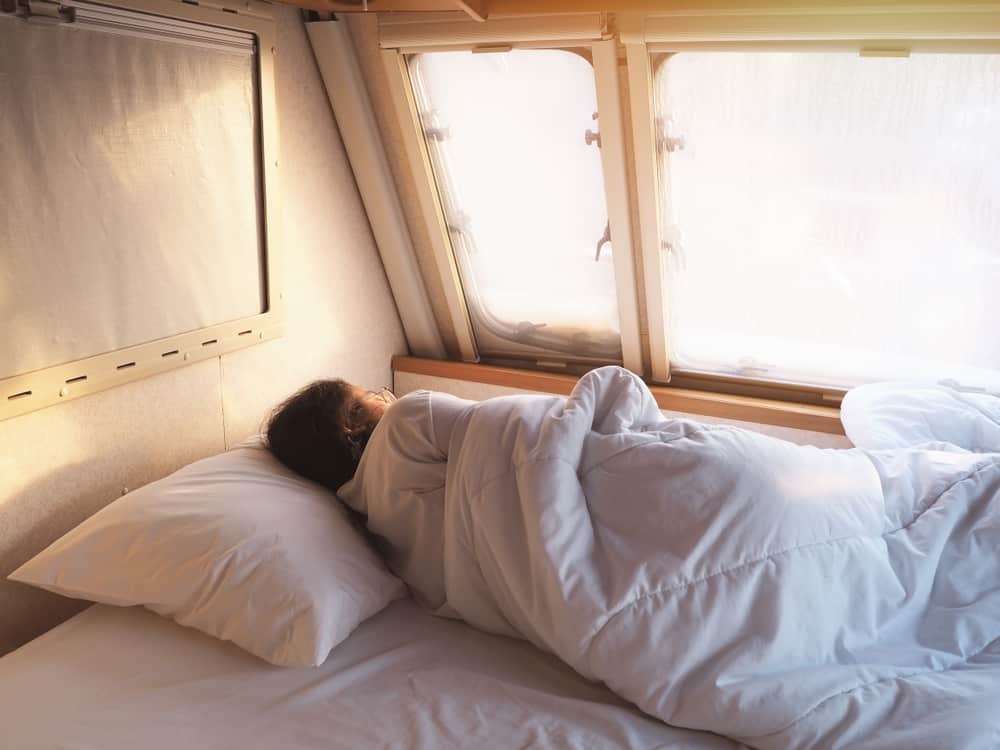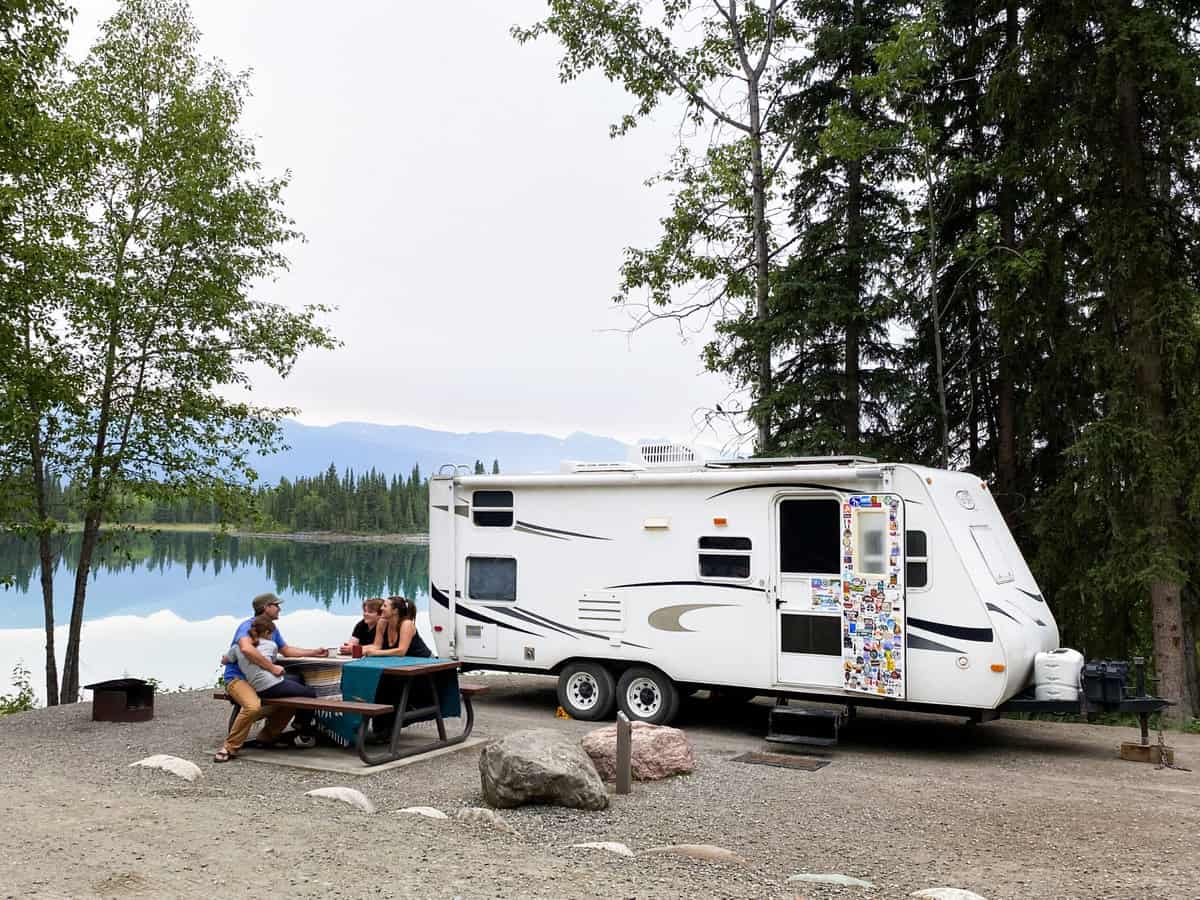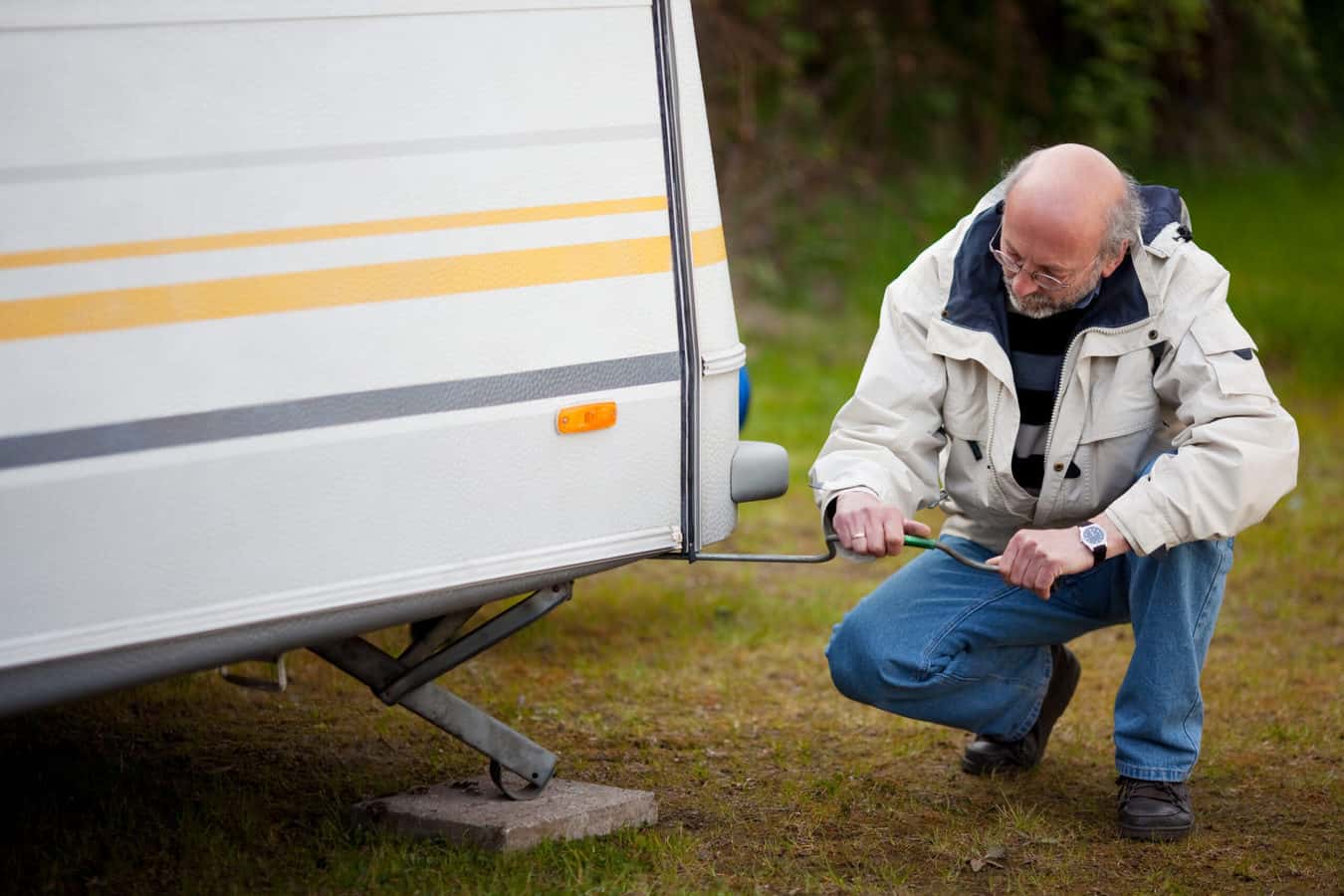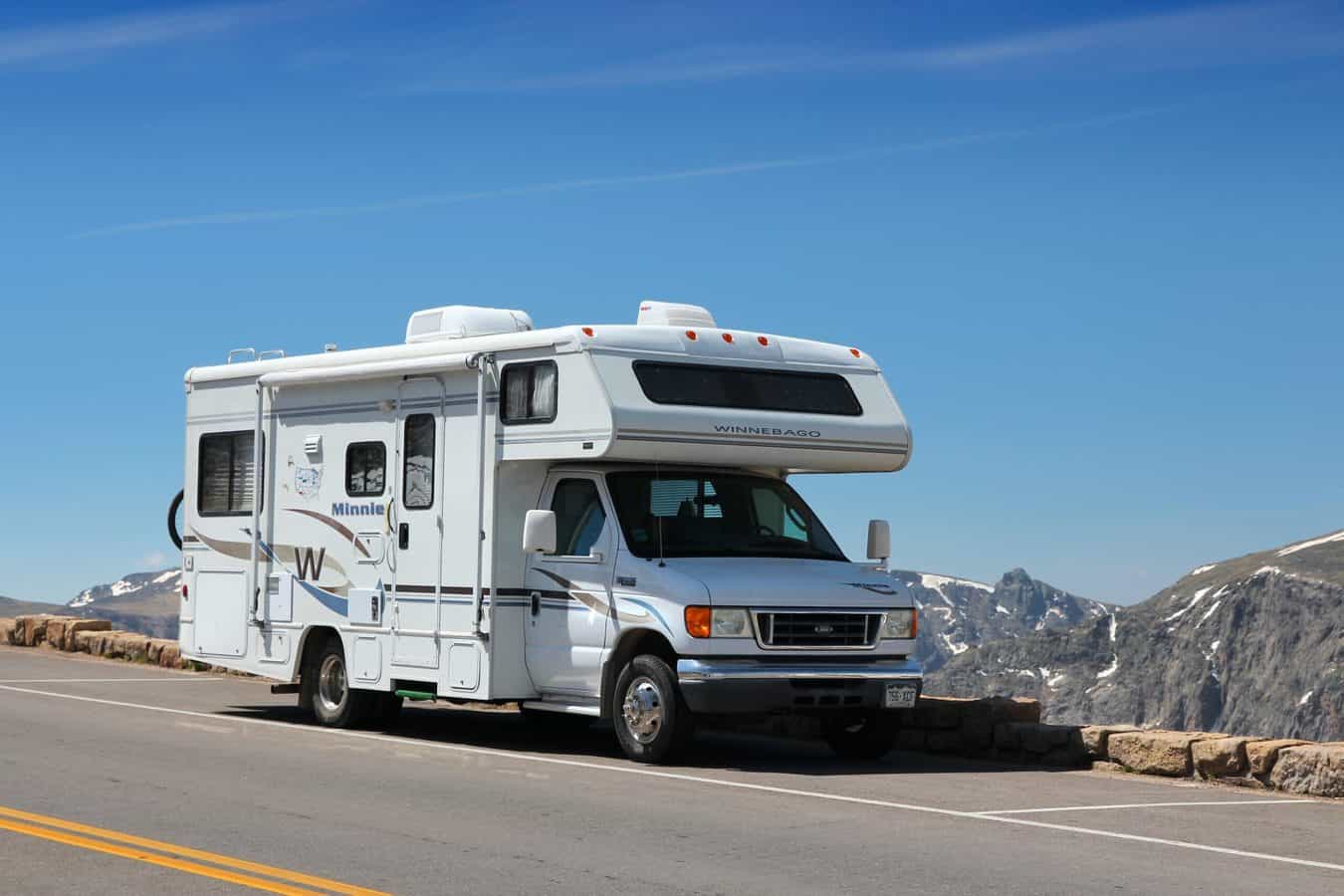
15 Signs You’re Getting Sick From Your RV
There is no doubt that RV camping has grown in popularity. More families than ever are hitting the road and going camping in their new or used RVs. A self-contained RV provides a means of social distancing and isolating, even while on holiday or working remotely.
However, sometimes RVers develop mysterious (but undeniable) symptoms when living in their beloved RV. In this article, we’ll be looking at signs your RV is making you sick and what you can do about it.
If you have any of the following signs of illness in your RV, you’ll want to consider if your RV could be making you sick.
- Watery eyes
- Burning feeling in eyes, nose, and/or throat
- Coughing
- Wheezing
- Difficulty breathing
- Rapid breathing
- Rapid heartbeat
- Nausea
- Upset digestive system
- Skin irritation or rashes
- Dizziness
- Cognitive impairment
- Headaches
- Tiredness
- Loss of consciousness
The Top 4 Causes Of RV-Related Illness
There are usually four things that could be making you sick in your RV. While carbon monoxide poisoning is the most common cause, a few other things can cause RV illness too.
1. Propane leaks
In the RV, we use propane for heat, cooking, and refrigeration. It’s a very useful gas. But propane can be deadly too. Propane is heavier than air, and when it is inhaled, it quickly fills the lungs, replacing the life-giving oxygen we need. A propane leak can spell disaster for you and your family when you are RVing. Here’s how to tell if a propane leak in your RV might be making you sick.
Initial symptoms of propane exposure
Propane leaks can be usually be identified by a rotten egg odor. If you or a member of your family have these symptoms, take them outside to fresh air and position them so they can breathe comfortably. Turn the propane valve off. If there is no improvement or symptoms don’t immediately start improving, call 911 and seek medical help immediately.
- Rapid breathing
- Rapid heart rate
- Clumsiness
- Emotional upsets and fatigue
Advanced symptoms of propane poisoning
If you or a member of your family have been exposed to propane and are exhibiting the any of the following propane poisoning symptoms, get them outside into fresh air in a position that makes it easy to breathe, shut the propane valve off, and call 911 to seek immediate medical help.
- Nausea and vomiting
- Convulsions
- Dizziness
- Lightheadedness
You can prevent propane leaks by installing and using a GasStop propane emergency shutoff device. The device monitors the pressure in the propane system and quickly shuts off the propane if there is any sign of a leak.
The GasStop is simple to install without tools and is proven to be very effective. Installing a propane emergency shutoff device to protect your RV is a no-brainer when it comes to RV safety.
2. Carbon monoxide poisoning
Carbon monoxide is sneaky because it’s odorless and invisible. It’s also the number one cause of poisoning in the US.
Poisoning from carbon monoxide happens when carbon monoxide builds up in your bloodstream and replaces the vital oxygen carried by red blood cells. Carbon monoxide poisoning damages brain cells quickly and is particularly dangerous to children, intoxicated people, and older adults.
Carbon monoxide is produced whenever wood, propane, gasoline, or other fuel is burned. Whenever you use propane inside the RV, it’s important to open a vent or window to allow adequate ventilation.
If you or a member of your family might have been exposed to carbon monoxide, get them outside into fresh air in a position that makes it easy to breathe. Here are some of the signs you’re getting sick from carbon monoxide:
- Dull headache
- Weakness
- Dizziness
- Nausea or vomiting
- Shortness of breath
- Confusion
- Blurred vision
- Loss of consciousness
If you or a member of your family might have been exposed to carbon monoxide, get them into fresh air in a position that makes it easy to breathe and call 911 immediately to seek medical help.
All RVs should have a carbon monoxide detector to alert you to dangerous levels of carbon monoxide in the RV. It’s important to replace your carbon monoxide detector every 5 years.
3. Formaldehyde off-gassing
Formaldehyde is a chemical that is still used in some RV walls floors and cabinets. Poisoning from formaldehyde off-gassing is more common in newer RVs since off-gassing usually occurs in the first year after the RV was manufactured.
While it isn’t deadly, formaldehyde off-gassing can lead to a variety of symptoms that will leave you wondering if allergies are making you sick. If you have a new RV and have been experiencing the following symptoms, it may be a result of formaldehyde off-gassing in your RV.
- Itchy, watery eyes
- Sore throat
- Nasal irritation/runny nose
- Coughing
- Wheezing
- Nausea
- Skin rashes and irritation
Certified green RVs are manufactured without the use of formaldehyde. Click here to see which brands don’t use formaldehyde.
You can often tell if a new RV has formaldehyde in it by the presence of a pungent odor in the RV. If you have a new RV that was manufactured with formaldehyde, it will take up to a year to finish off-gassing. Keeping the RV ventilated with the fan on and windows open will help to reduce symptoms by allowing gasses to escape. You can hasten the off-gassing process by “cooking” the gas out. Here’s how to do that.
- Remove all food, plants, clothing, dishes, etc, from the RV.
- Prepare the interior by opening all the RV cabinet doors and drawers. Set cushions on furniture so they will get maximum exposure to air.
- Close all windows, doors, and vents.
- Turn the thermostat up to its highest level.
- Leave the RV with the heat on for 12 hours.
- Turn the heat off and open all doors, windows, and vents. Turn the overhead fans on to help draw air out of the RV.
- Wait for at least six hours before returning.
4. Signs you’re getting sick from mold
Mold in your camper can really make you sick. If you have mold in your camper, you might experience the following symptoms:
- Sore throat
- Shortness of breath
- Coughing
- Sinus and/or nasal congestion
- Itchy runny eyes, nose
- Sore throat
- Dry, itchy, or red skin
- Difficulty focussing
- General malaise
- Dizziness
If you experience any of the above symptoms, and there is mold present in your RV, you might be suffering from mold toxicity. Should your symptoms persist, you should seek medical advice. Getting rid of the mold and preventing it from reoccurring will help to alleviate any sickness associated with it.
To eliminate mold in your RV, first open the RV windows to allow ventilation. Open the cabinets to access mold that might be inside them. Spray all visible mold with pickling vinegar, allow it to sit for five minutes, and then wipe off the vinegar and mold with a damp rag or paper towels.
When you’re finished, dispose of all cleaning rags outside of the RV. If it keeps reoccurring, you’ll need to address the source. Mold loves cold, damp conditions, so check for leaks from the exterior and also check for leaks in plumbing. You may also need to ventilate and/or heat your RV.
Make sure you keep track of all your RV maintenance and repairs with an online tool such as RV LIFE Maintenance. Not only can you keep all of your documents in one place, but you’ll also receive timely reminders when maintenance is due to help you avoid costly repairs and potentially serious accidents.
Related articles:





Last few days, I just haven’t felt right. Oddly tired when in RV, caught my attention, but accompanied headaches and nausea ( I don’t get) muscle pains and waves of confusion. Bought a barely used Coleman Dutchman 2022 337bh a couple months ago. After leaking,a smell and noticed weakened floor..I pulled up dinette carpet, found think black mold-like substance on ply wood under carpet.
This “15 signs your tv is making you sick”was a real eye opener for us! I’ve been living in my motorhome for almost 5 years and I have over that time with memory & focus issues and many of the other symptoms in this article. It was a total “aha moment”, that’s for sure! We are now looking for mold (which I’m very allergic to), leaks, and propane issues! We do have 2 carbon monoxide/propane/smoke sensors in our 28’ motorhome, and they work too well, so I think we are covered on that score! Now we are going in search of any moisture and or mold inside the RV!
One thing I’ll share because I discovered it on my rig! Most Class A, B, and C rigs have marker lights across the front, above the windshield. These get smacked by low hanging branches and we sometimes don’t even realize it!! I had a drip, drip, drip on the dashboard right in front of the steering wheel and couldn’t figure out where it was coming from! I mentioned it to my RV guy and he immediately told me about the marker lights up front and how they should be checked often and replaced when any have any cracks no matter how small they are.
I was shopping for a new RV and noticed that in several RVs my throat was burning within a few minutes of entering them. They tend to be the lower priced RVs and, hence, likely buit on the cheap. I am lucky that I can smell or and feel that there are volatile chemicals in the air, many people can’t. I hate to think how damaging this may be to the occupants who will sleep in the RV. These chemicals are linked to cancer or neurodegeneration, it is not a joke, they need to be banned.
I am going nuts trying to figure out why I get headaches and what the chemical is that’s making me nauseous! We have a new grand design. Help please!
Some Brands Sometimes are not built correctly. We had one recently that the Exhaust and Intake Ports for the Gas furnace were not put in at the factory. when the Furnace was turned on it was pure CO exhaust staying in the Camper. We had another Class C that The seal between the Ford and the Motorhome was not installed and the Exhaust Gases from the Engine or Generator would come right in the RV and It made the Delivery Driver Sick.